EOS Data Analytics issues urgent plea for imagery of Ukraine
Tuesday, 01 March 2022 05:09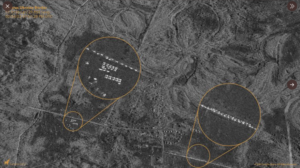
EOS Data Analytics is asking Earth observation companies around the world to share up-to-date optical and radar satellite imagery of Ukraine.
The post EOS Data Analytics issues urgent plea for imagery of Ukraine appeared first on SpaceNews.
NASA exploring ways to keep ISS afloat without Russian help: official
Monday, 28 February 2022 19:22
NASA is exploring ways to keep the International Space Station in orbit without Russian help, but doesn't see any immediate signs Moscow is withdrawing from the collaboration following the invasion of Ukraine, a senior official said Monday.
Kathy Lueders, who heads the agency's human spaceflight program, told reporters on a call that operations on the research platform were proceeding "nominally" and "we're not getting any indications at a working level that our counterparts are not committed.
Europe's joint Mars mission with Russia postponed by war
Monday, 28 February 2022 19:21
The launch of a joint Europe-Russian mission to Mars this year is now "very unlikely" due to sanctions linked to the war in Ukraine, the European Space Agency said Monday.
Russia-Ukraine war raises questions for upcoming OneWeb launches
Monday, 28 February 2022 18:47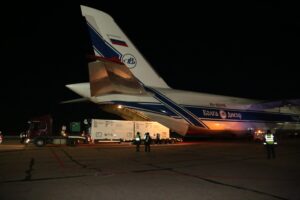
Mounting international sanctions amid Russia’s war on Ukraine have thrown plans to launch 36 OneWeb satellites this week into uncertainty.
The post Russia-Ukraine war raises questions for upcoming OneWeb launches appeared first on SpaceNews.
SpaceX heeds Ukraine’s Starlink SOS
Monday, 28 February 2022 17:03
SpaceX CEO Elon Musk said Saturday that he's sending Starlink terminals to Ukraine to help keep the embattled country connected to the outside world as Russia steps up its invasion.
The post SpaceX heeds Ukraine’s Starlink SOS appeared first on SpaceNews.
ESA says it’s “very unlikely” ExoMars will launch this year
Monday, 28 February 2022 16:38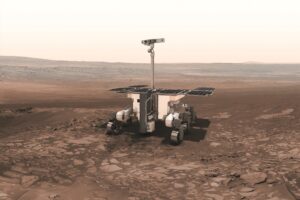
The European Space Agency said Feb. 28 that it is “very unlikely” that its ExoMars mission will launch this September because of sanctions on Russia from its invasion of Ukraine.
The post ESA says it’s “very unlikely” ExoMars will launch this year appeared first on SpaceNews.
Lockheed Martin, Northrop Grumman, York Space selected to build DoD’s internet-in-space constellation
Monday, 28 February 2022 15:12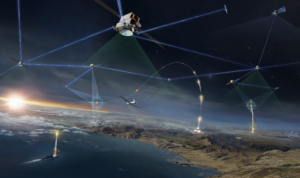
The Space Development Agency announced Feb. 28 it awarded Lockheed Martin, Northrop Grumman and York Space Systems contracts worth nearly $1.8 billion to produce 126 satellites for a global communications network in low Earth orbit.
ULA Atlas V rocket topped off with NOAA's GOES-T satellite
Monday, 28 February 2022 14:10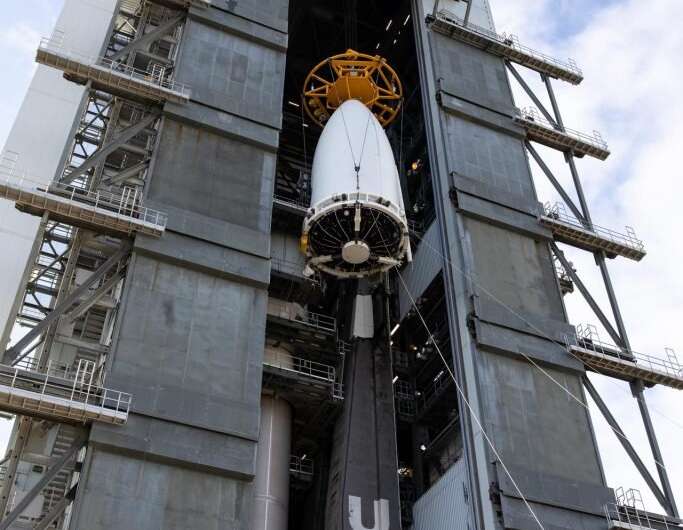
The National Oceanic and Atmospheric Administration's (NOAA) Geostationary Operational Environmental Satellite-T (GOES-T) satellite now officially has its ride.
GOES-T was transported from Astrotech's Space Operations facility in Titusville, Florida, to United Launch Alliance's (ULA) nearby Vertical Integration Facility at Cape Canaveral Space Force Station's Space Launch Complex 41. It was then mated to the top of the Atlas V 541 rocket, which will carry it into space.
ISS experiments to find solutions for cleaning up orbital debris and repairing damaged satellites
Monday, 28 February 2022 12:16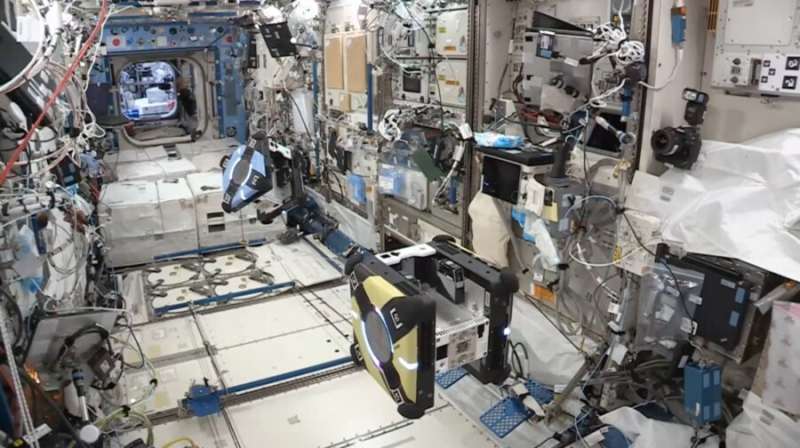
In 2002, the European Space Agency launched Envisat, the largest civilian satellite (at the time) to go to low Earth orbit (LEO).
ESA statement regarding cooperation with Russia following a meeting with Member States on 28 February 2022
Monday, 28 February 2022 11:56Press Release N° 6–2022
We deplore the human casualties and tragic consequences of the war in Ukraine. We are giving absolute priority to taking proper decisions, not only for the sake of our workforce involved in the programmes, but in full respect of our European values, which have always fundamentally shaped our approach to international cooperation.
GOES-T nears launch as NASA plans studies of next-generation weather satellite
Monday, 28 February 2022 11:12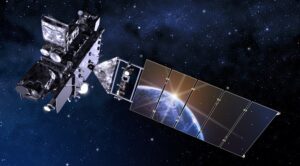
The latest in a series of geostationary weather satellites is ready for launch as NASA takes the next step in plans for a next generation of such spacecraft.
The post GOES-T nears launch as NASA plans studies of next-generation weather satellite appeared first on SpaceNews.
Keeping it fluid(ics) | Cosmic Kiss 360°
Monday, 28 February 2022 08:00 Video:
00:02:58
Video:
00:02:58
Europe’s Columbus laboratory is a hive of activity in this 360° timelapse as ESA astronaut Matthias Maurer works on an experiment called Fluidics and his NASA colleague Raja Chari carries out activity in the Veggie plant habitat.
Developed by French space agency CNES and co-funded by Airbus, the Fluidics experiment investigates how liquids behave in space. It was first run by ESA astronaut Thomas Pesquet in 2017 during his Proxima mission.
Made up of six small, transparent spheres housed in the black centrifuge seen here, the experiment studies two phenomena. The first is ‘sloshing’ or how liquids move in
Satellite imaging companies increase profile as they track Russia’s invasion of Ukraine
Sunday, 27 February 2022 23:00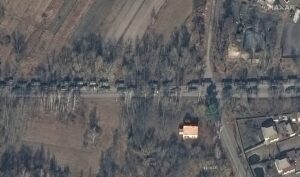
The conflict in Ukraine has showcased the capabilities of commercial geospatial companies whose high-resolution satellite images have been ubiquitous for the past several weeks.
The post Satellite imaging companies increase profile as they track Russia’s invasion of Ukraine appeared first on SpaceNews.
Commercial spy satellites put Russia’s Ukraine invasion in the public eye
Sunday, 27 February 2022 23:00
Images collected by commercial satellites have chronicled the buildup of Russian forces on Ukraine’s borders and the ongoing invasion, providing intelligence previously only available from government sources — and seldom released to the public.
China launches national record 22 satellites on Long March 8 commercial rideshare
Sunday, 27 February 2022 13:44
China’s second Long March 8 rocket launched late Saturday carrying a domestic record 22 satellites for a range of commercial Chinese space companies.

